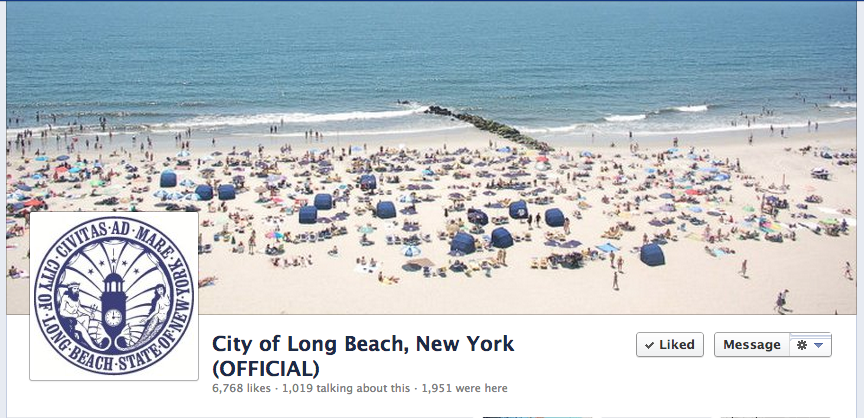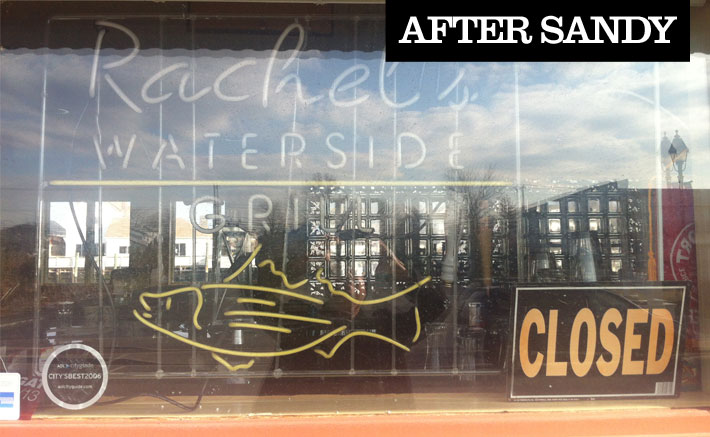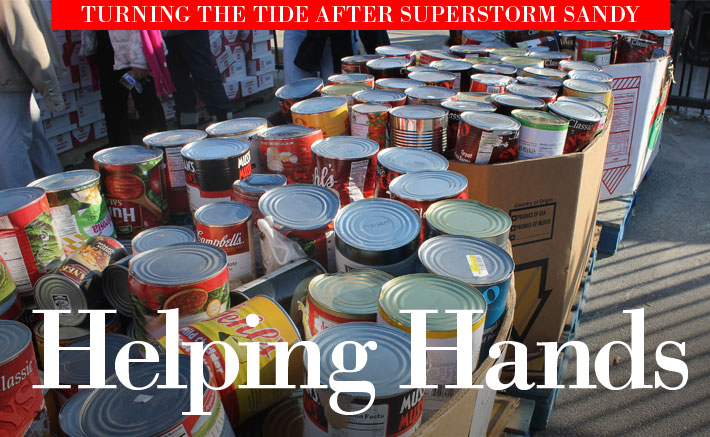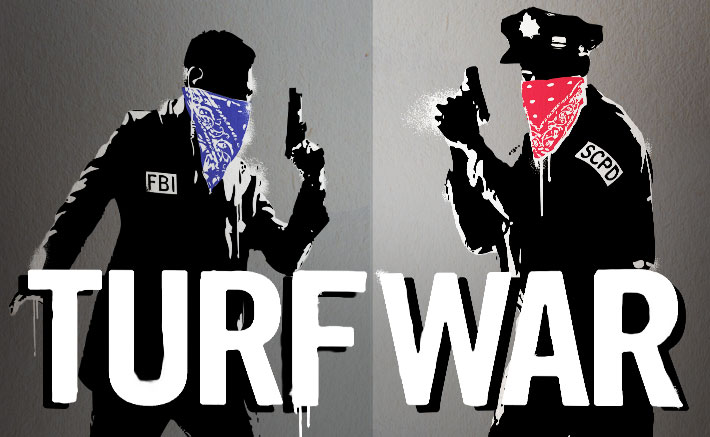

City of Long Beach Facebook page
It was 2:45 a.m. on Oct. 30 and the anonymous person behind the City of Long Beach’s Facebook page somehow squeezed this seemingly ho-hum message through the digital universe despite struggling Internet and cellular service, all thanks to Superstorm Sandy.
“We will send out more updates as soon as possible.”
The message was clear and succinct. It provided no details regarding the destruction caused by Sandy nor did it reveal in detail the calamity of the situation. But the message spread like wildfire over the Internet and into the smartphones and tablets of Long Beach residents desperately starved for information just hours after the historic storm crushed the city’s infrastructure and knocked out power to most of its residents.
Nearly 10,000 people saw the status update. It was shared and shared all over again and it provided a glimpse into the importance of social media during and after a destructive storm rocks an area, even amid a significant blackout.
“The city’s Facebook page was a critical component in terms of communication during Hurricane Sandy,” said City of Long Beach communications director Gordon Tepper, the man responsible for updating the city’s social media sites. “Whatever form of communication we could use we were trying to tap into it.”
Many others used Facebook as a kind of bat signal to let friends and loved ones know they survived the superstorm.
The enormously popular social media site reported on Oct. 30 that Hurricane Sandy was second to only the Super Bowl as the most talked about event this year, according to CNN.
Twitter also exploded with Sandy-related messages. The site reported that between Oct. 27 and Nov. 1 (the storm struck on Oct. 29) there were more than 20 million tweets regarding the storm. And on Oct. 30, 20 percent of search queries on the site were related to the hurricane.
“This was an instance where we really saw the power of social media come alive in a way that we may not have before,” said Sree Sreenivasan, chief digital officer of Colombia University who also covers social media for the tech site CNET. “Social media works really well when it’s a combination of the personal and the useful and the timely, and all of that happened with this particular incident.”
Still, important—and factual—information was hard to come by.
Despite the millions of messages being spread around the Internet, some Long Island residents started to grow frustrated with the silence from local governments.
So what did some residents do? They booted up Facebook.
Debbie Zagaja of Merrick serves as lieutenant with the Village of Freeport Police Department.
Unhappy with the lack of information coming from the village, the 50-year-old police lieutenant created the “Rebuilding Freeport — Post Hurricane Sandy” Facebook page, which now has more than 700 “likes.”
Initially, her plan was to aid people on the ground, but she quickly realized Facebook offered her a wider audience and all it required was a couple of clicks of the keyboard.
“It really became a page to spread information after the storm rather than during the storm,” she said.
Zagaja got her information from other sites, including those of Nassau County lawmakers, and would repost and share critical information helpful to Freeport residents.
The page also attracted observers from outside Freeport and New York State. Her family in Florida used the site to catch a glimpse of the destruction while other outsiders utilized the page as a forum where they could request help for a loved one living in the area.
She got a message from a woman in Suffolk County asking if anyone had a spare generator for her grandmother living through bone-chilling temperatures with no heat. Zagaja relayed the message on the page and instantly found an eager participant and the heater was dropped off to the woman’s home.
Stories like this were all over the web.
Thirty-year-old Amy Castiglia of Lindenhurst, the creator of “Lindenhurst After Hurricane Sandy,” which boasts more than 1,400 likes, discovered that a transformer in South Freeport still wasn’t operational, so she relayed the message to her followers.
“When I woke up, I had…five different messages about generators,” she said.
The Facebook site became an arm of a physical relief group dubbed, Camp Bulldog, which accepts donations and provides hot food and supplies for those severely affected by Sandy.
“I think everyone in our group understands now [that] Facebook was the reason we were able to garner so many large donations because I was reaching out to so many people that otherwise wouldn’t have known we were here,” Castiglia said.
Several people, including Zagaja of the Freeport group, were critical of the government for not having a plan in place to use social media to disseminate relevant information to the public.
“The government really should’ve had someone doing this almost 24/7,” she said. “I think social media is so important that you really need to have someone that’s really spending their time updating and informing people, it’s that important.”
Allison Sarmiento of Shirley was even more blunt.
“Facebook: learn how to use it,” she told Suffolk County lawmakers of how the site helped galvanize a community donation hub during a post-Sandy hearing on Dec. 7.
The City of Long Beach didn’t even have a social media platform when Tepper, the communications director, started working for the city in 2011.
Now?
“I’d like to think that we’re ahead of the curve when it comes to social media,” Tepper said. “But given the circumstances of Hurricane Sandy communicating in any form was quite difficult,” adding that at one point the city had to resort to paper fliers and announcements via bullhorns.
Sreenivasan, of Colombia, said people storming to social media sites during important events is nothing new. He noted that activity on those sites has increased over the last “three, four, five years,” adding, “natural weather disasters are perfect for this as it turns out.”
“Not only are people more comfortable,” using these platforms, he said, “people expect you to do it.”
As for Tepper, he’s still using the city’s Facebook page as a Sandy news wire—but it’s not always bad news.
“The City of Long Beach sends a huge thank you to Billy Crystal for mentioning us at the 12-12-12 concert tonight!” he said Wednesday night.






